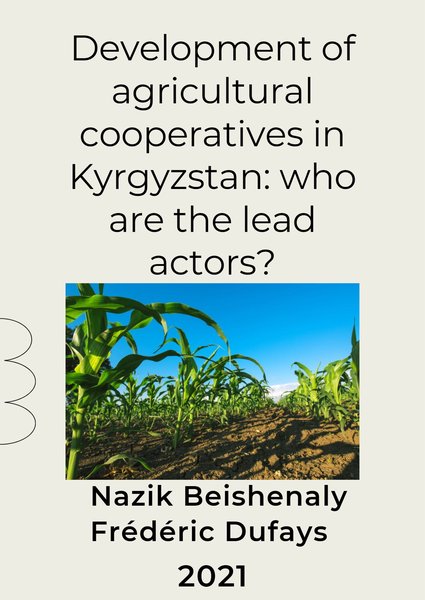




Year: 2021
Collections: Scientific Publications
Topics: Agriculture
Authors: Beishenaly Nazik, Dufays Frédéric
Countries: Kyrgyzstan
Source: Central Asian Journal of Water Research
Downloads:
Agricultural cooperatives play an important role in promoting local communities and sustainable farming practices in many parts of the world. In Kyrgyzstan their development remains a challenge despite the existence of laws and policies, support from donor-funded projects and the existence of an apex organisation. What is missing for their development and who should lead their development? Adopting an entrepreneurial ecosystem (EE) approach to the analysis of the agricultural cooperatives, we aim to identify the lead actors of the agricultural cooperatives’ development in Kyrgyzstan and understand what roles such a lead actor plays in the emergence and strengthening of an EE for agricultural cooperatives. Adopting a case study approach, we retrieved archival data published between 1991 and 2020 on agricultural cooperatives in Kyrgyzstan, that included documents from government, cooperatives and their apex organisations, and studies commissioned by international organisations. We reviewed data using a grounded theory approach and organised our codes and text excerpts around the EE elements and actors. Thereby, we identify what roles the three principal actors of cooperative development, namely government, cooperatives and their apex organisation, and international organisations, play in different EE dimensions – i.e., policy, skills and education, market environment, culture, networks and partnerships. Among others, we uncover that the lead actor varies across EE dimensions and the paradox, where expectations of the government and cooperatives’ are inadequate to their funding abilities; while international organisations, that could fund cooperatives’ development, do not consider them as a priority in their projects. Although the study has limitations due to its exploratory nature, we offer both theoretical contribution extending entrepreneurial ecosystem approach to the study of agricultural cooperatives in transition economies and practical implications for better understanding and integrating agricultural cooperatives in the international development programming.
По всем вопросам сотрудничества обращайтесь по эл.адресу или телефону: